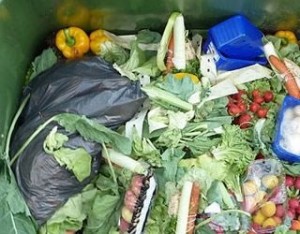Nestlé supports waste initiative
 The global Food Loss and Waste Accounting and Reporting Standard has been launched in Copenhagen, Denmark at the 3GF (Global Green Growth Forum) summit. For the last three years, Nestlé says it has, in the framework of World Resource Institute (WRI), played a significant part in developing the standard as a tool that can be adapted worldwide by all parts in the food chain from farm to fork.
The global Food Loss and Waste Accounting and Reporting Standard has been launched in Copenhagen, Denmark at the 3GF (Global Green Growth Forum) summit. For the last three years, Nestlé says it has, in the framework of World Resource Institute (WRI), played a significant part in developing the standard as a tool that can be adapted worldwide by all parts in the food chain from farm to fork.
“We clearly see this standard as a massive, global step in fighting food loss and waste,” said Nestlé Nordic Market Head, Michiel Kernkamp. “The standard is outstanding in its setting of clear targets and in its full transparency. But maybe most of all it is outstanding as a tool where you can measure your steady progress within food loss and waste. What gets measured, can be managed. At Nestlé, we will definitely also benefit significantly by using the standard to help us address food loss and waste across the value chain.”
Nestlé says it is committed to further playing its part in helping to reduce food loss and waste. Not only will reducing food loss and waste in the world help Nestlé to secure supplies of the agricultural raw materials needed at Nestlé, but it will also have a positive impact on society by supporting rural development, water conservation and food security. This, notes the company, is in line with Nestlé’s Creating Shared Value approach to doing business.
One of Nestlé’s efforts in improving nutrition, health and wellness, while at the same time fighting food waste, is the Nestlé Portion Guidance initiative. It is a voluntary initiative designed to bridge international dietary recommendations (e.g. in the form of food guides) and nutrition labelling regulations. This guidance is presented through a variety of consumer-engaging ways: product form, pack design, clear illustrations and, occasionally, a serving device or dispensing machine.
“In recent years, there has not been full clarity to the consumer of how much is right to eat. We need to change that,” said Kernkamp. “Nestlé is committed to improve communications on for instance the packs to enable the consumers to eat the portion sizes that is right for every individual. By preparing and eating the right portion, of course there is a significant benefit of avoiding food waste and improving health.”
At production level, there are also significant gains in Nestlé: since 2005, the company says it has reduced total waste for disposal from the 436 Nestlé factories by 62%. At the end of 2015, 105 Nestlé factories (22%) achieved zero waste for disposal. Nestlé has committed to achieve zero waste for disposal in all its sites by 2020.
“We will now – with the use of the FLW Accounting and Reporting Standard – further optimize our efforts to reduce food loss and waste,” said Kernkamp. “Under the leadership of our CEO who launched the Champions 12.3 coalition earlier this year together with WRI, we will advocate for this standard worldwide wherever and whenever this is possible – for instance in Consumer Goods Forum representing more than 400 of the world’s largest retailers and manufacturers and service providers from 70 countries.”

































